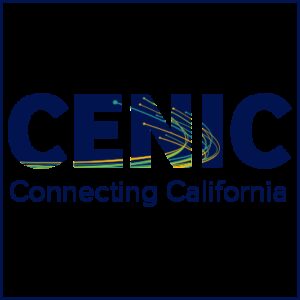- About
- Network
- Community
- Initiatives
- News
- Events
- Blog
- Publications

The Levantine and Cyber-Archeology Lab Awarded CENIC’s 2016 Innovations in Networking Award for Research Applications
Categories CCCs University of California
The Levantine and Cyber-Archeology Lab Awarded CENIC’s 2016 Innovations in Networking Award for Research Applications
The Levantine and Cyber-Archeology Lab at UC San Diego, led by Professor Thomas Levy, has been selected by the Corporation for Education Network Initiatives in California (CENIC) as a recipient of the 2016 Innovations in Networking Award for Research Applications.
The Levantine and Cyber-Archeology Lab develops and deploys new software, hardware, and systems for reconstructing the archeological record through the use of digital technologies for imaging, analysis, and visualization. Professor Levy and his colleagues are innovators and leaders in the field of cyber-archeology, pioneering archeological methods to create “a new and objective future of the past.”
Archeologists are increasingly using digital technologies to record ancient artifacts and sites for research, conservation and presentation to the public. UC San Diego is a leader in this field, which is often called “Cyber-Archaeology.” Professor Levy and his colleagues developed a great workflow for data acquisition, curation, analyses and dissemination. In this new research world, digital data file sizes and the quantity of files are growing exponentially every year. Part of this is because higher resolution instrumentation is becoming better and cheaper, and the application of digital data acquisition tools like laser scanning and Structure from Motion (SfM) photography that create billions of data points in their 3D 'point clouds' is rapidly becoming part of the norm for many expeditions.
The Levantine and Cyber-Archeology Lab is among the innovative data-intensive science domains to launch the Pacific Research Platform (PRP), winner of this year’s Innovation in Networking Awards for Experimental Applications. The PRP creates a robust and seamless research platform that will encourage statewide, regional – even worldwide – collaboration. The PRP supports a broad range of data-intensive research projects that will have wide-reaching impacts on science and technology worldwide.
The PRP offers a unique opportunity for archaeologists, as social scientists, to be players in helping to solve the computer science challenge of moving big data - for the Levantine and Cyber-Archeology Lab, cultural heritage data – from one UC library or museum at remarkable speeds of up to 100 gigabits per second to another. This will enable researchers and students at, say, the UC San Diego Geisel Library, to co-locate data from their dig in the ancient copper mining lowlands of Biblical Edom in Faynan, southern Jordan, with their colleagues at UC Berkeley's Phoebe Hearst Museum, who also dig in Edom, but up on the high plateau at Busayra, the capital of Biblical Edom, around 20 miles away as the crow flies.
“It will also be much safer to move cultural heritage data because of the enhanced security options available in the PRP network (rather than Internet). This will be especially appealing to many countries where governments demand control over digital data (everything from professional photos to 3D models) related to their cultural patrimony. This is sometimes hard for outsiders to understand, especially those of us from countries with open-access from our major granting institutions such as the National Science Foundation (NSF), who demand frameworks that increase public access to scientific publications and digital scientific data resulting from work that NSF funds. I often think of the PRP, especially in the way we will use it in California, as the perfect model for a country: for testing and setting in place the protocols that could shape how a nation-state (like Greece), which does have proprietary policies over their cultural heritage, can be at the cutting-edge of research and data dissemination and share it amongst its universities, museums, and research institutions in ways that adhere to their local practices,” said Professor Levy, director of the Levantine and Cyber-Archeology Lab at UCSD, and one of the scientific leaders of the PRP.
”The Levantine and Cyber-Archeology Lab, under Professor Levy’s leadership, has pioneered innovative approaches to understanding and preserving cultural heritage through what he calls ‘the marriage of archaeology with engineering, computer, and natural sciences.’ The Lab’s participation – and leadership – in the PRP will, in turn, shape the way that cultural heritage is shared with sensitivity to diverse local and cultural contexts,” said CENIC President and CEO Louis Fox.
A recent article in Forbes (February 19, 2016) made the case for the profound impact that Professor Levy and his colleagues are having on the public’s access and involvement in archeology: “When we all feel we have a stake in our collective cultural heritage, we stand to gain important information about the past that can inform the present and affect the future. 21st-century archaeology is an archaeology by, for, and of the people of the world,” wrote Kristina Killgrove, a bioarchaeologist at the University of West Florida.
Innovations in Networking Awards are presented each year by CENIC to highlight the exemplary innovations that leverage ultra high-bandwidth networking, particularly where those innovations have the potential to transform the ways in which instruction and research are conducted or where they further the deployment of broadband in underserved areas.
Related blog posts
CENIC and San Diego Supercomputer Center Create Sustainable Agriculture for California’s Future
CENIC’s networking and services, including CENIC AIR, can be a vital part of preparing new generations of farmers that will apply the latest technology to agriculture by turning the farm into an educational setting and improving the efficiency of farming as a career.
Advancing AI for California’s Community Colleges through Collaboration Across the CENIC Membership
It’s been eight months since the San Diego Community College District connected to CENIC AIR—and CENIC membership was essential at every step of the way.



